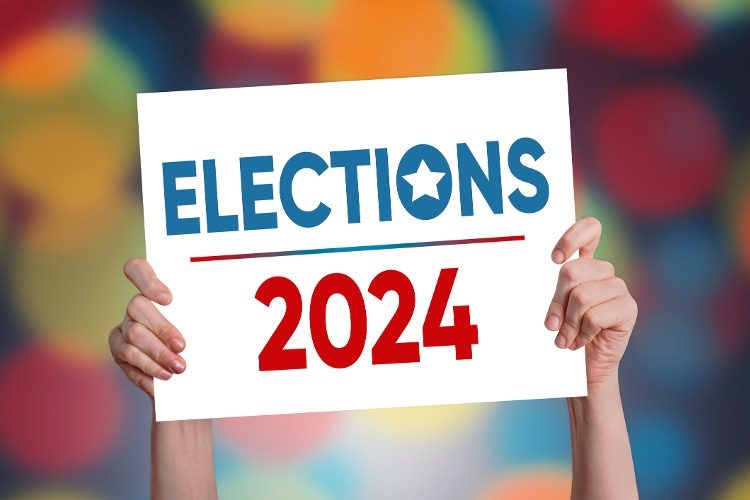
Since the controversial 2020 election, American patriots have answered the call to secure one of their most important freedoms and duties. And with less than a month until the 2024 election, battles over election rules are coming to a head.
Georgia
Georgia is the scene of some of the most intense election wrangling. Over the past couple of months, the Georgia Election Board has passed a number of rules designed to make it easier to investigate potential fraud and harder to cheat. Not surprisingly, state Democrats and the Democratic National Committee sued over the rules. And on Tuesday, a state judge ruled in their favor.
Fulton County Superior Judge Robert McBurney issued two rulings. First, he said that election officials may not delay or decline to certify election results based on suspicions of fraud. He said the problem with the board’s rules is the lack of limits on potential investigations.
McBurney also ruled that the requirement for a hand count of ballots election night will not be implemented before November’s contest. Opponents said this rule came about too late and there wasn’t enough time to train poll workers. Another point of objection, an ironic one, was that the rule would delay election results. Republican Georgia Secretary of State Brad Raffensperger is among those who made the latter point. The concern for delayed election results is laughable, given that Democrats are the ones who have turned “election day” into “election month.”
The J6 melee is part of the reason for the judge’s second ruling. McBurney wrote in an eight-page ruling: “This election season is fraught; memories of January 6 have not faded away, regardless of one’s view of that date’s fame or infamy. Anything that adds uncertainty and disorder to the electoral process disserves the public.”
The judge did not issue a decision on five other rules, which were discussed at the hearing Tuesday.
Ohio
In Ohio, election-integrity activists received better news, though there are still plenty of reasons for concern.
On Tuesday, the Ohio Supreme Court upheld an election rule that should make ballot harvesting more difficult. The court sided with Ohio Secretary of State Frank LaRose and upheld a recent rule that stopped authorized people from using a drop box to return absentee ballots for those with disabilities. Up to this point, people authorized to deliver ballots on behalf of a family member or a voter with a disability could take the ballot to a drop box. Now, those people must go to the Board of Elections to return the ballot and complete an attestation form. The court dismissed a suit filed by two voters and the Ohio Democratic Party, saying it came too late because absentee voting began October 8. LaRose said the following in a statement after the decision:
I’m grateful the court has allowed us to proceed with our efforts to protect the integrity of Ohio’s elections. Political activists tried once again to dismantle the safeguards we’ve put in place, specifically in this case against ballot harvesting, and they’ve been rejected. This is the same policy that’s been used successfully in other states, and it’s designed to protect both individuals and election officials from accusations of illegal voting.
But the verdict on Ohio’s election status is still out. According to a press release issued October 15 by election-watchdog group United Sovereign Americans, “More than 100,000 new registration violations were exposed last week by analysts volunteering for United Sovereign Americans (USA). Of these suspicious edits, 32,480 are existing registrants who registration dates have suddenly shifted backward in time, and 74,576 are existing registrants whose ID number has inexplicably changed, when federal law requires a single, unique ID.” You can read more about this here.
Virginia
Virginia is another hotbed of election controversy.
On October 11, the U.S. Department of Justice sued Virginia for allegedly violating federal law by removing potential illegals from voter rolls too close to the general election. According to ZeroHedge, the DOJ alleged in a court filing that Virginia’s voter-removal program violated the “Quiet Period Provision” in the National Voter Registration Act, which requires that states complete their programs for removing ineligible voters from active rolls no later than 90 days before an election.
More from ZeroHedge:
According to the complaint, Virginia Gov. Glenn Youngkin signed an executive order in August requiring the commissioner to certify that daily updates to the state’s voter lists were being conducted.
The DOJ said the process has resulted in U.S. citizens having their voter registrations canceled. The state removed 6,303 individuals from the rolls between January 2022 and July 2024, according to the complaint.
It further alleged that local registrars had no discretion to prevent the cancellation of voters who fail to return “an affirmation of citizenship” even if they have reason to believe that those voters are U.S. citizens.
“This systematic voter removal program, which the State is conducting within 90 days of the upcoming federal election, violates the Quiet Period Provision,” the DOJ said in a statement.
Youngkin criticized the Biden administration for filing the lawsuit with less than 30 days before the election and said that he had “appropriately” enforced the law.
The Republican governor called the DOJ’s lawsuit “unprecedented” and said it was a “politically motivated” attempt to interfere with the state election, according to a statement issued by his office on Oct. 11.
“Virginians — and Americans — will see this for exactly what it is: a desperate attempt to attack the legitimacy of the elections in the Commonwealth, the very crucible of American Democracy.”
Arizona
In Arizona, where Joe Biden supposedly won in 2020 by 10,000 votes, the election picture is rather dark. Election watchdogs suspect that at least 200,000 illegals registered to vote. America First Legal has sued Arizona Secretary of State Adrian Fontes for refusing to hand over the names of more than 200,000 registered voters who have allegedly not provided proof of citizenship.
According to the lawsuit, Fontes is breaking the law by refusing to comply with a records request that demands the names of roughly 218,000 individuals who registered to vote, but did not provide proof of citizenship.
Moreover, it turns out that at hundreds of voters have commercial businesses as their residence. A Breitbart exclusive cites work by the Public Interest Legal Foundation (PILF), which shows that some Arizona voters have registered at an abortion clinic, a strip club, a high school, and the Arizona Cardinals Training Facility. As Breitbart reported, PILF exposed similar voter registration issues in Clark County, Nevada, finding that voters had registered to vote at strip clubs, casinos, Harry Reid International Airport, smoke shops, gas stations, and other commercial businesses.
Texas
And down in Texas, in a major reversal from her guidance just days ago, Texas Secretary of State Jane Nelson said that voters may not use non-citizen driver’s licenses as a form of identification.
As reported by Texas Scorecard, a directive by the Secretary of State issued Tuesday afternoon said that while citizens should not use those types of IDs to vote, poll workers should nonetheless offer a regular ballot to people on the voter rolls who present a noncitizen ID. This is contrary to 2018 guidance from the Secretary of State’s office, which said that DPS-issued driver’s licenses and personal identification cards “should not be used if ‘Limited Term’ or ‘Temporary Visitor’ appears on the face of the card, as this indicates the person is not a U.S. Citizen.” Instead, voters with such IDs were urged to show other forms of identification, including naturalization certificates or passports, Scorecard reported.




